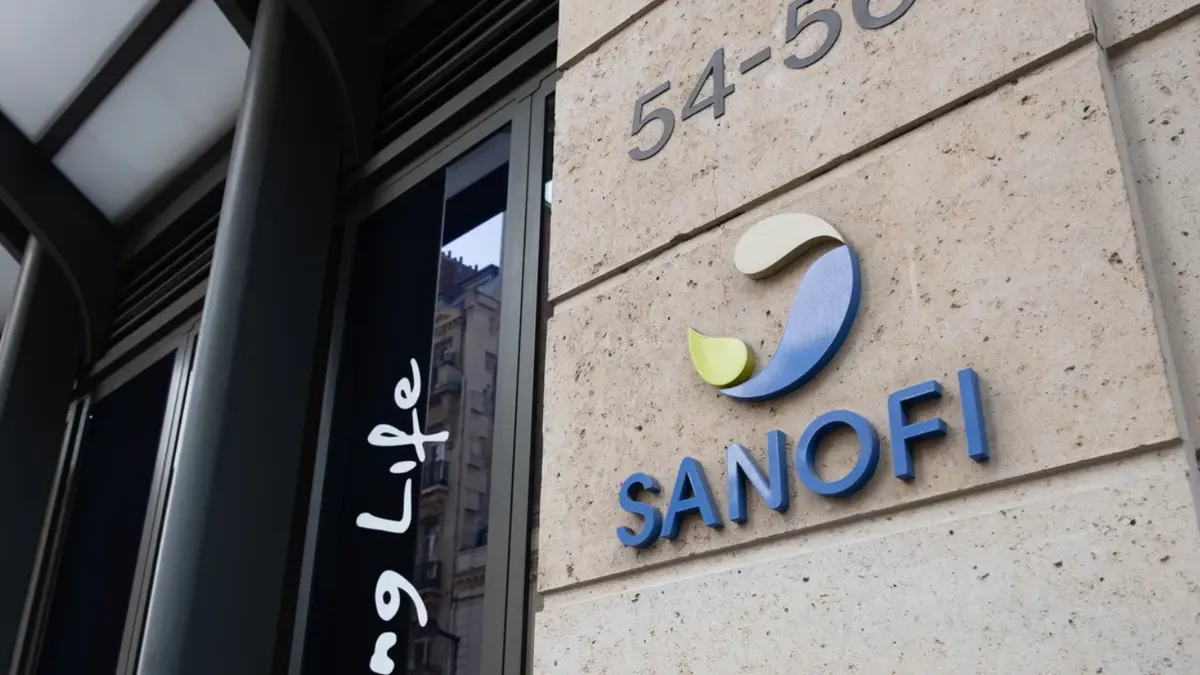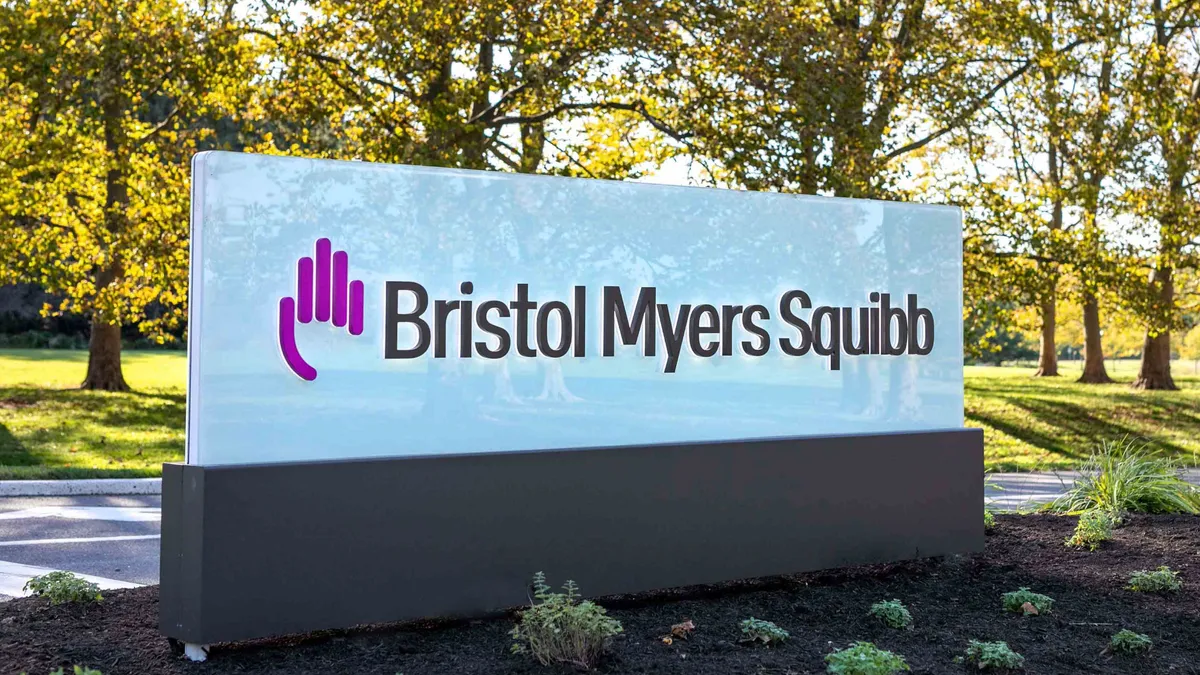Typically, the election of a Republican to the White House is welcome news for the biotechnology and pharmaceutical sectors.
The incoming administration is a more uncertain prospect, however. President-elect Donald Trump has signaled disruption with unorthodox nominations for key healthcare roles, and could throw support behind policies disliked by drugmakers.
Such political risks come at a tenuous time for the industry, which has weathered broader economic headwinds. “Each of the macro levers that determine biopharma performance … appear as uncertain as ever,” analysts at Baird wrote in a Wednesday note to clients, citing monetary policy, tariffs and healthcare reforms.
While political and economic issues may dominate 2025, within the industry there are several therapeutic trends likely to shape investment, most prominently in metabolic and immune diseases. Read on for five of the most important questions facing pharma this year:
What regulatory impact will the Trump administration have?
The U.S government is due by Feb. 1 to announce the next set of drugs it will target for negotiations on price within Medicare, which covers some 67 million people aged 65 and older or who are disabled.
Some expect the Centers for Medicare and Medicaid Services, which administers Medicare, to reveal its list before Trump is inaugurated. Among the drugs expected to be on the list is semaglutide, the active ingredient in Novo Nordisk’s obesity drug Wegovy and diabetes drugs Ozempic and Rybelsus.
Trump has vowed to push for a repeal of at least parts of the Inflation Reduction Act, but whether he would seek to cancel Medicare drug price negotiation is an open question. In his first term, his administration had drawn out and ultimately failed attempts at lowering drug prices. Having a law in place to reduce some drug prices as well as an established mechanism to carry it out could give Trump an opportunity to claim easy political wins.
Over at the Food and Drug Administration, Martin Makary looks like a relatively conventional, albeit contrarian, nomination. However, his boss as Trump’s health secretary, assuming both are confirmed, would be Robert F. Kennedy Jr., who has claimed vaccines cause more harm than good despite ample evidence to the contrary. Kennedy has also been critical of the pharmaceutical industry and the FDA, claiming the agency has waged a “war on public health.”
Kennedy’s vaccine views, in particular, have raised questions about the future of Peter Marks, head of the FDA division that reviews vaccines and biological drugs. Marks’ disagreements with drug reviewers in two instances, including on COVID-19 vaccines, could be used as justification for a change in his role, although he has sought conciliation since Kennedy’s nomination. — Jonathan Gardner
Can the rest of the pharma industry catch Lilly in obesity?
Eli Lilly won an important commercial advantage in its obesity drug rivalry with Novo Nordisk when a head-to-head study showed its medicine Zepbound helped people lose more weight than Novo’s competing Wegovy.
As the two companies resolve manufacturing shortfalls that have constrained uptake of their GLP-1 drugs, Lilly’s newfound edge could help boost prescriptions for Zepbound. Demand may rise even higher should a trial called SURMOUNT-MMO show Lilly’s medicine can prevent cardiovascular complications and death, a standard Wegovy has already met.
Moreover, Lilly appears to be in a leading position to launch successor therapies, as data on an oral GLP-1 are due later this year and results for a triple-acting drug are set to read out in 2026. Novo, meanwhile, hit a setback when its dual-acting obesity drug fell short of executives’ expectations. A new type of drug from a class called CB1 blockers looks like it will spend more time in Phase 2 after some mixed results, too. Novo’s best hopes for good news in 2025 rest with a Phase 3 trial of an oral version of Wegovy.
Other would-be rivals have stumbled, too. Pfizer’s bid to develop an oral GLP-1 slowed in mid-stage development, while Amgen has seen its own disappointment developing a monthly obesity shot.
Among smaller biotechs, companies like Structure Therapeutics, Viking Therapeutics and Terns Pharmaceuticals have Phase 2 trials underway, with data due late this year or next. The closest competitor could be Zealand Pharma, whose dual-acting, Boehringer Ingelheim-partnered drug survodutide could yield Phase 3 data in obesity around the end of the year. — Jonathan Gardner
Will drug company stocks continue to underperform?
In Wall Street’s parlance, biotech and pharma is a “stock picker’s market.” Unlike in the early months of the COVID-19 pandemic, when investor enthusiasm for drug companies buoyed the entire sector wholesale, the past few years have been much more challenging.
Last year, healthcare underperformed all other major sectors represented in the S&P 500 stock market index, according to analysts at Leerink Partners. Some $28 billion has flowed out of biotech and healthcare funds over the past few years, per Piper Sandler — an ebbing tide of investment the bank described as having little equal in its two decades of tracking this data.
The stock market tribulations have snuffed out a good portion of the optimism that stole across the sector during parts of 2024. To some, they signal a changing pattern of investment by so-called generalists, who track major drug classes like the obesity medicines from Eli Lilly and Novo Nordisk but may otherwise be staying away from biotech niches.
“One seriously has to question at this point whether generalists ever return to the broader sector – innovation, M&A, interest rates have all thus far been unsuccessful,” wrote the team at Mizuho Securities in an outlook note published mid-December.
Mizuho’s outlook may prove too gloomy, but it’s a worthy question. Prolonged sluggishness in biotech stock markets could have a range of knock-on effects, from constraining funding options to altering dealmaking dynamics. It could also draw greater attention to the parts of the industry do perform well, such as in obesity. — Ned Pagliarulo
How will vaccine makers fare?
Some of the industry’s largest companies have struggled over the past year to get a handle on fluctuating sales of vaccines for COVID-19 and respiratory syncytial virus. Pfizer and Moderna, in particular, have come under investor pressure as sales of their COVID shots declined by more than they originally predicted.
Both companies were counting on new vaccines for RSV to help offset some of those declines, but the growth of the U.S. market has underwhelmed investors. Moderna, in particular, has seen little uptake of its shot mResvia. So much so the company’s CEO recently told investors that, going forward, the company no longer plans to count revenue from products in their launch year in financial frameworks it uses to guide investors.
GSK, which markets an RSV vaccine called Arexvy, has also seen lower demand this fall.
One headwind is a narrower-than-expected recommendation on use from the Centers for Disease Control and Prevention. The companies, however, hope to eventually make a case for a booster dose, as well as for expanding immunizations to younger groups, which could bolster sales.
Broadening use to young children may take more time, though. Moderna recently paused a study testing its shot mResvia in children and infants after reports of severe cases of RSV. The FDA later paused enrollment of children under the age of 2 in clinical studies testing RSV vaccines that are not of the live-attenuated type.
Outside of COVID and RSV, investors are paying more attention to next-generation vaccines for influenza and pneumococcal disease.
Bird flu may also draw more investment as the H5N1 virus continues to circulate in animal herds and in humans, although the CDC maintains that the public health risk remains low. Louisiana reported the first death from the virus in the U.S. this month.
Meanwhile, the possible confirmation of Robert F. Kennedy Jr., who has long opposed vaccines, as Trump’s health secretary could impact developers. Analysts, however, aren’t sure how much his views would actually affect vaccine regulation. “While his nomination is not guaranteed, we generally see little risk of anything of substance, in the development and approval of vaccines,” analysts at Mizuho wrote in a recent note. — Delilah Alvarado
What will emerge from the industry's pivot into immunology?
The pattern was predictable. Each year from 2018 to 2023, biotechs developing drugs for cancer were the most common acquisition target, edging out those in other therapeutic areas, BioPharma Dive data show. The trend reflected pharma companies’ sustained interest, and investment, in oncology.
Last year, however, BioPharma Dive tracked 14 immunology-focused buyouts worth more than $50 million upfront, ahead of the 11 such deals in cancer. The largest biotech acquisition in 2024 was Vertex Pharmaceuticals’ purchase of Alpine Immune Sciences.
While deal totals within a calendar year are somewhat random, the data from 2024 are still a telling representation of the industry’s turn toward immunology.
The pivot has several strands. Armed with better drugmaking techniques, companies are working on oral alternatives to current injectable mainstays. Emerging drug targets have offered new ways to tackle hard-to-treat diseases. And powerful therapies repurposed from use in cancer appear promising for use in certain autoimmune conditions. As a result, most large pharmas have now carved out immunology as a specific area of emphasis, either by continuing their own internal research or acquiring outside science.
“We specifically expect continued strategic interest in immunology,” wrote Leerink analysts in their 2025 outlook note.
Investment requires returns, of course, and this year will bring further evidence of whether the industry’s bets prove well placed. A few companies, Sanofi, Roche, Biogen, Merck & Co. and Vertex among them, are counting on it. — Ned Pagliarulo
Editor’s note: This story has been updated to clarify clinical trial timelines for Structure Therapeutics.






















